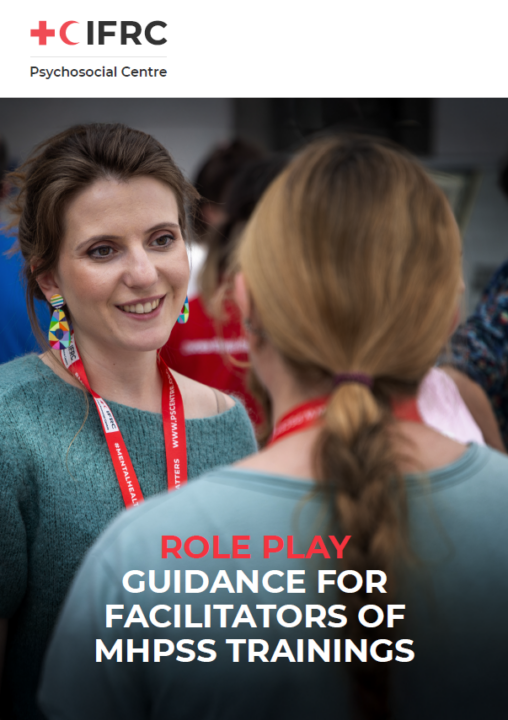Role plays are a powerful tool that can provide insight and depth during a learning process. However, effectively utilizing and facilitating role plays can be a challenge for even the most experienced facilitators. This guidance is written specifically to support facilitators in the effective use of role plays in training on mental health and psychosocial support (MHPSS).
To understand the potential and importance of role plays in MHPSS training - one should imagine a first aid training without training dolls or test dummies. You would have great theoretical insights on how to do heart massage but not the concrete application of knowledge. The case is the same in MHPSS training. Without role plays, trainings will remain largely theoretical without that critical component of applied skill-building and felt experience
IFRC Psychosocial Centre Technical Advisor, Joshua Lee author of the publication.
The guidance grew out of expressed interest and need from RCRC National Societies. National Society colleagues from Poland, Croatia, Czech Republic, Portugal and Ukraine provided their insights and experiences throughout the development of the guidance.
No guidance is universal. A training always needs to be adapted to a specific context and audience. In the RCRC Movement that would include some of the most volatile, conflict ridden and dangerous areas of the globe. Role plays can be a challenge for anyone, but when colleagues are already exposed to potentially traumatic events in their work or personal lives, it is absolutely vital that facilitators include trauma-informed considerations in the preparation phase and conduct safe trainings for all participants
Joshua Lee
This guidance is not intended to be a manual with prescribed steps but should be taken as a pedagogical tool with helpful tips, considerations, and recommendations for facilitators to use as needed.



